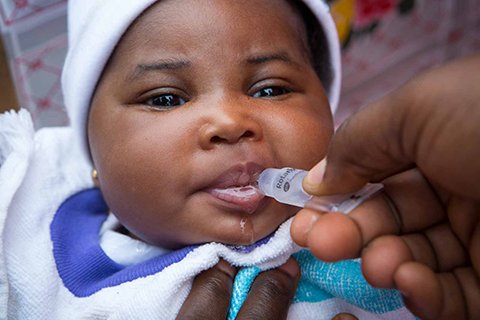Researchers aim to raise infant vaccination rates with innovative transportation options

CSE professors studying timeliness of healthcare access in Uganda
May 16, 2018
Vaccines are the most powerful and cost-effective means of protecting infants from many life-threatening diseases. However, vaccines only work if they are given at the right time in a baby’s first year of life.
For parents in developing countries, getting their infants routinely vaccinated can be difficult or even impossible due to many issues—including a lack of transportation to clinics. To increase vaccination timeliness, a University of Minnesota team is testing a new strategy in Uganda to offer residents living in high-density urban areas cheap, reliable alternative transportation to clinics.
Meeting Grand Challenges
Funded by an initial Grand Challenges Grant from the Bill & Melinda Gates Foundation, Industrial and Systems Engineering Assistant Professor Diana Negoescu is leading a University of Minnesota research team to work on this problem. Her collaborators include fellow Industrial and Systems Engineering Professor Saif Benjaafar and School of Public Health Assistant Professor Nicole Basta. The team also includes Cecily Banura from Makerere University in Uganda. Projects showing success have the opportunity to receive additional funding of up to $1 million from the Bill & Melinda Gates Foundation.
The researchers will combine mathematical modeling efforts led by Negoescu, with epidemiologic field studies led by Basta and Banura, to design and evaluate an intervention that provides new mothers with vouchers for shared rides and text-message reminders when it’s time to vaccinate their babies.
“We aim to improve access by harnessing the power of network transportation providers, such as Uber and SafeBoda, to integrate with health systems and provide the means for families to reach vaccination clinics,” Basta said.
From Minnesota to the world
The project grew out of a collaboration between Benjaafar and Negoescu that was supported by the Minnesota Council on Transportation Access (MCOTA). The duo examined opportunities for public-private partnerships involving transportation network companies.
“We are excited that research funded by MCOTA inspired work that caught the attention of the Gates Foundation and may have an impact on a global level,” Benjaafar said.
Now the researchers will model the expense and benefits of increasing vaccination timeliness and rates in urban areas of Kampala, Uganda. They’ll also work with a group of residents to learn more about the most effective ways to overcome barriers to routine vaccinations and cell phone access, which they’ll need in order to receive text messages and use the transportation services.
If the pilot project is successful, the team will scale up the concept. If that next step—a large, randomized trial—shows improved access to vaccinations, the system could be used to protect infants in similar settings around the globe.
Story adapted with permission from the School of Public Health. Original story by Charlie Plain.
If you’d like to support innovation research at the University of Minnesota College of Science and Engineering, visit our CSE Giving website.
